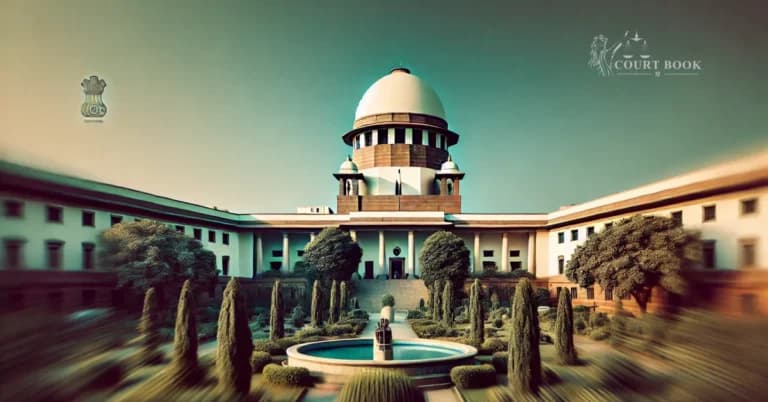The Supreme Court of India recently raised critical concerns over the Tamil Nadu Governor’s delay in addressing the bills passed by the State Assembly. The Court questioned whether the Governor could merely sit on these bills if he deemed them repugnant to Central laws without promptly informing the State Government.
The Court highlighted that under Article 200 of the Constitution, if the Governor believes a bill is repugnant, he must return it to the Assembly for reconsideration at the earliest. The delay in this process has led to what the Court termed an “impasse,” especially since the President has also returned the bills on the grounds of repugnancy. The Court asserted that it would examine whether the bills were indeed repugnant and take necessary action accordingly.
"If the Governor is prima facie of the view that a bill suffers from repugnancy, should he not immediately bring it to the notice of the State Government?" - Justice Pardiwala
Read Also:- Governor Cannot Use Pocket Veto on Bills Tamil Nadu Governments Argument in Supreme Court
The issue dates back to 2020, with the oldest bill pending since January of that year. After years of inaction, on November 13, 2023, the Governor withheld assent for ten bills. In response, the Tamil Nadu Legislative Assembly reconvened on November 18, 2023, and re-enacted the same bills. Some of these were later referred to the President on November 28, 2023.
Four lawyers representing the State argued before the Court, leading to the formulation of eight legal questions for further deliberation. The Court sought clarity on whether the Governor had any obligation to communicate his concerns to the State Government when withholding assent.
Read Also:- TN Govt Moves SC Against Governor Over Pending Bills
The petitioners contended that Article 200 provides the Governor with three options when presented with a bill:
- Grant assent
- Reserve the bill for the President’s reconsideration
- Withhold assent
The State argued that if the Governor chose to refer a bill to the President, he should have done so immediately. Instead, the Governor withheld assent without returning the bills for reconsideration, leading to legal uncertainty.
Attorney General R. Venkataramani defended the Governor’s actions, arguing that withholding assent effectively nullifies the bill. He stated that the Governor was under no obligation to return the bill to the Assembly if he decided to withhold assent.
Read Also:- SC Upholds Karnataka Law Granting Transport Permit Issuance Power to STA Secretary
"The Governor need not necessarily write an essay on repugnancy. He can simply send it to the President." - Attorney General R. Venkataramani
However, the Court challenged this stance, questioning how the State Government could address the issue without being informed of the specific concerns.
Impact of the Bills on the Governor’s Role
The Court also examined the broader implications of the bills, particularly those that sought to remove the Governor as Chancellor of state universities. The Attorney General argued that this move contradicted the University Grants Commission (UGC) regulations, leading to further complications.
"If the Bills overlook the UGC Regulations and have deprived me of my power, does that amount to repugnancy?" - Justice Pardiwala
The Court remained skeptical of the Governor’s reasoning, pressing for clarity on whether his actions were legally justified.
Read Also:- SC Upholds Kerala High Court's Direction to Register FIRs on Women's Exploitation in Malayalam Cinema
The Role of the President Under Article 201
The Court also scrutinized Article 201, which states that when the President withholds assent, he must return the bill to the Governor, who must then communicate the decision to the Assembly.
Justice Pardiwala questioned the Attorney General on how the State Government was expected to resolve the issue if the bills were never formally returned for reconsideration. He stressed that creating an impasse without offering a resolution was not a viable approach.
"If you create the impasse, you have to clear the impasse. But who will clear the impasse? There cannot be an absolute deadlock." - Justice Pardiwala
Read Also:- Arrest is Illegal If Reasons Are Not Communicated Supreme Court Upholds Fundamental Right to Information
Another significant argument was the absence of a specific timeframe in Article 200 for the Governor to act on a bill. The petitioners contended that the phrase "as soon as possible" should be interpreted within reasonable limits.
Senior Advocate Abhishek Manu Singhvi cited the 2021 Keisham Meghachandra Singh judgment, in which the Supreme Court held that a Speaker should decide disqualification petitions within three months. The Court asked for references to this judgment to determine if a similar principle could be applied to the Governor’s duties under Article 200.
The Supreme Court is set to continue hearings on this issue, seeking a resolution that ensures accountability in the legislative process. The case highlights the need for clear communication and adherence to constitutional provisions when dealing with state legislation.
Case Details:
- The State of Tamil Nadu v. The Governor of Tamil Nadu and Anr | W.P.(C) No. 1239/2023
- The State of Tamil Nadu v. The Vice-Chancellor and Ors | W.P.(C) No. 1271/2023
The hearing will resume on Monday, where further arguments are expected to clarify the constitutional responsibilities of the Governor in such matters.














